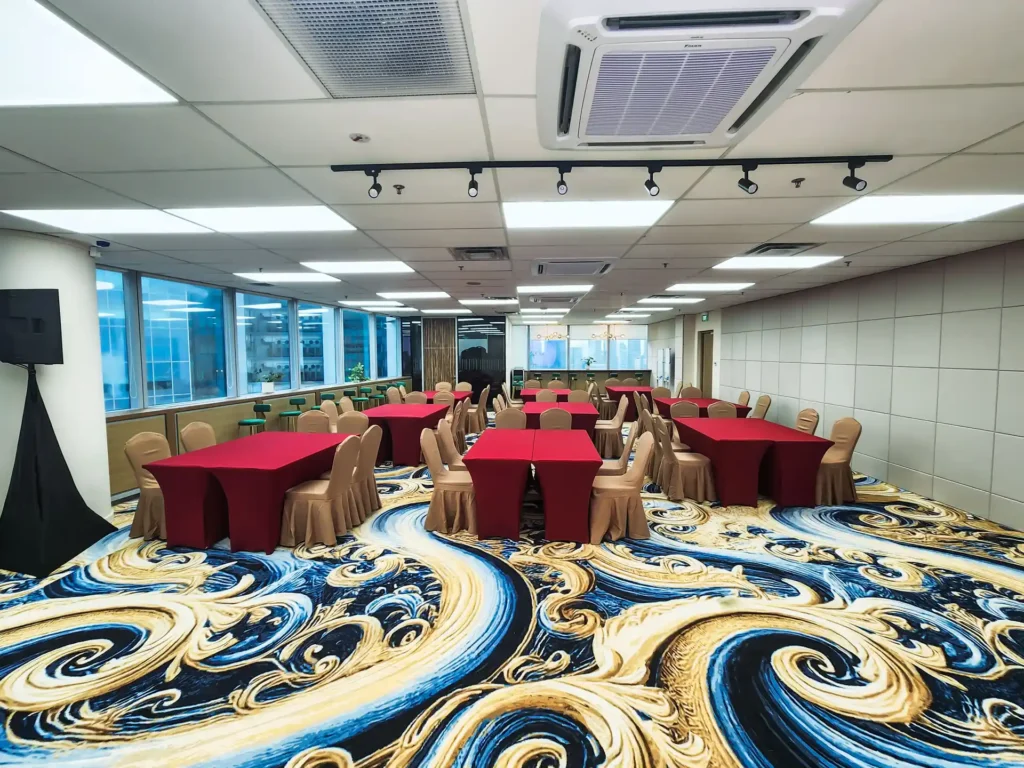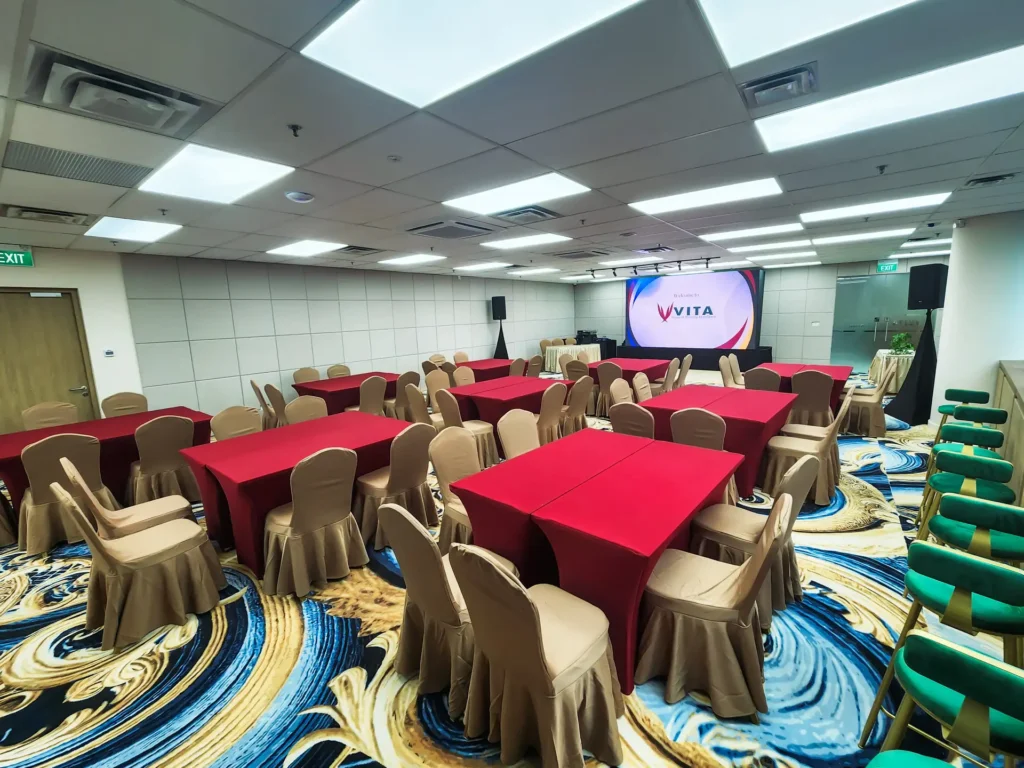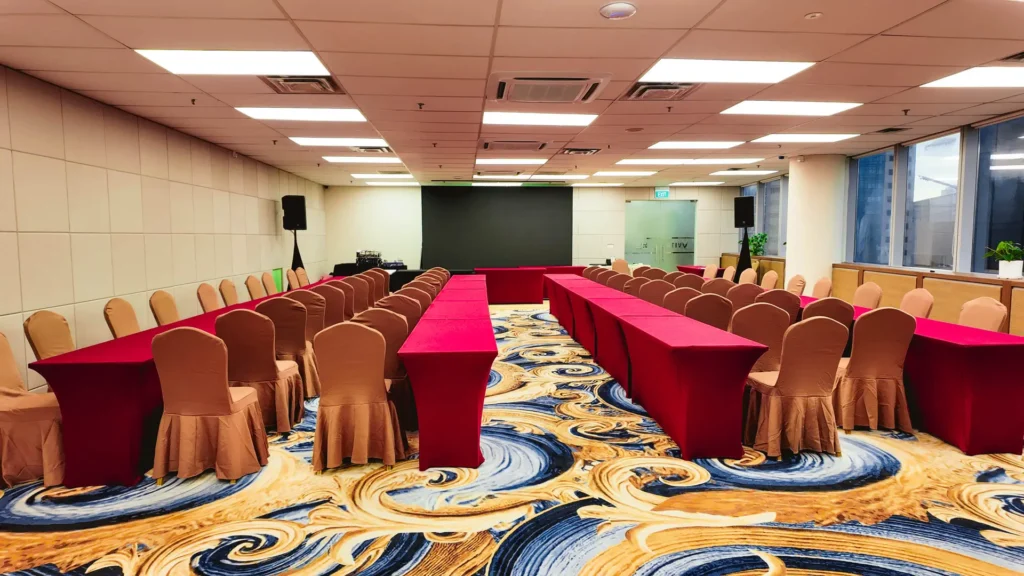How to Know You’re Choosing the Right Space: A Checklist Before Booking an Event Venue
Before diving into the specific checklist we recommend, it’s helpful to first understand the broader considerations in how to choose an event space. Once we’re familiar with those foundational steps, we can move on to more detailed planning.
In any event planning process, having a comprehensive checklist before booking an event venue is crucial to ensure a successful outcome. We understand that selecting the appropriate venue influences many factors such as logistics, guest experience, and budget management. Therefore, it is important to evaluate all relevant aspects carefully before making a final decision.
This article outlines the key considerations that should be included in such a checklist. By following these guidelines, we can assist event organizers in making well-informed choices that contribute to smooth and memorable events.
Choose the Right Spot: Location Matters More Than You Think
Location is often the first item on any venue evaluation checklist. We advise assessing how easily guests can reach the venue, which includes considering access to public transport, availability and capacity of parking spaces, and ease of navigation around the area. Accessibility also extends to ensuring the venue accommodates attendees with mobility needs through ramps, elevators, and clearly marked pathways.
A venue that is difficult to locate or reach may cause unnecessary delays and frustration, undermining the event’s success. Additionally, the venue’s surrounding environment should be taken into account whether it is in a safe neighborhood, well-lit, and offers nearby amenities such as restaurants or hotels that might be relevant to guests.
Capacity and Layout: Suitability for the Event
One of the fundamental aspects we focus on in the checklist before booking an event venue is the venue’s capacity and how its layout supports the event’s flow. It’s not just about fitting the expected number of guests — it’s about creating an environment where everyone feels comfortable and the event activities can unfold smoothly.
We consider venues that offer a variety of seating arrangements to accommodate different event formats. Whether it’s rows of chairs for a seminar, round tables for a gala dinner, or open spaces for mingling and networking, the layout needs to be flexible enough to support these needs. A rigid or poorly designed space can restrict movement, causing bottlenecks or making guests feel cramped.
Amenities and Services: Ensuring Comprehensive Support
A thorough checklist before booking an event venue must include evaluation of available amenities. These typically include audio-visual equipment, lighting, heating or air conditioning systems, and reliable internet connectivity. On-site catering options or the flexibility to bring in external caterers is another important factor.
We find that venues providing dedicated event staff or coordinators contribute greatly to smooth operations on the day of the event. Restroom facilities should be clean, sufficient in number, and easily accessible. Additionally, consider whether the venue provides storage spaces for equipment or personal belongings.
Budget and Contract Details: Transparency is Key
A thorough checklist before booking an event venue must include financial scrutiny. We stress the importance of a clear, detailed cost breakdown covering rental fees, deposits, overtime charges, and any hidden fees. Contracts often contain complicated legal jargon. Understanding terms about cancellations, refunds, and liabilities can prevent disputes later. Consulting legal or financial experts is a wise step to safeguard interests. Payment schedules and deadlines should also be clearly laid out. Missing a deposit or payment window could result in losing the venue altogether, so keeping track is essential.
Safety and Compliance: Non-Negotiable Priorities
Ensuring the venue meets safety regulations is an absolute must. We thoroughly check that the venue has proper fire safety measures in place, such as functioning smoke detectors, fire extinguishers, and clearly marked fire exits. Emergency exits need to be easily accessible and well-lit, allowing for a quick and orderly evacuation if needed. Compliance with local building codes and health regulations is also crucial to avoid any legal issues or last-minute shutdowns.
Security personnel on-site add another important layer of protection, helping to manage crowd control and address any unexpected situations swiftly. First aid provisions, such as a well-stocked medical kit and trained staff, are essential to provide immediate assistance in case of accidents or health emergencies. For larger events, verifying that there are adequate numbers of trained security and medical personnel is part of a thorough checklist.

Final Reflections on Event Venue Selection
A comprehensive checklist before booking an event venue covers far more than just securing a space. It allows us to approach the planning process with clarity ensuring that everything from the venue’s location and layout to its amenities, cost structure, and safety protocols is aligned with our goals. When we take the time to assess these elements carefully, we’re setting ourselves up for a smoother, more successful event experience.
For those of us organizing events in Singapore’s CBD, learn more about Vita Venue to see how our team and facilities can support your event planning needs.




